|
The USCCB designates each October as Respect Life Month: “a time to focus on God’s precious gift of human life and our responsibility to care for, protect, and defend the lives of our brothers and sisters.” The duty to bear Christian witness to the dignity of every human life extends, of course, throughout the year. The annual March for Life in DC and similar marches in other cities highlight the efforts of advocates for the unborn, but being pro-life includes many activities that receive less fanfare but that are no less important. By appreciating the inherent dignity and worth of each life as created by God, we recognize the sanctity of creation and our need to defend it.
The existence of an abortion clinic near my home exemplifies disregard for the dignity of human life, as well as the reality that many clients feel as if there is no better option for themselves or the nascent life inside the womb. To attempt to provide clients with an alternative to abortion and offer support, a number of advocates on the sidewalk offer counseling while others protest the clinic’s operation, pray for the souls affected, and pray in reparation for the sins committed there. Drivers and pedestrians passing by often passionately criticize our presence; many others choose ignorance or don’t want to become involved in such a contentious issue. It’s not a comfortable situation to be in, but we know we have a chance to intervene on behalf of the unborn and the parent(s) who don’t know where else to turn for assistance. Our position is not one of judgment but of love; we cannot turn a blind eye to this silent suffering. Being a father, I vividly recall the excitement and joy of seeing my child develop in the womb of my spouse and then be delivered into this world as an infant. These life events made my pro-life convictions more tangible for me. Even under less-than-ideal circumstances of conception, the personhood of the unborn is not diminished and therefore merits protection. Fatherhood continues to teach me about myself and my role leading a family towards holiness. I have learned I must recognize the graces God bestows on us to build our domestic church and be witnesses to the sanctity of life: the person, the family, and our Faith. I am encouraged by the many who engage with the culture and lawmakers to challenge preconceptions or misconceptions about the value of human life. The immigrant, refugee, criminal, and marginalized are endowed with the same worth as each of us! Threats to the sanctity of life endure in our society and also include sterilizations, physician-assisted suicides, human trafficking, mistreatment and neglect of seniors and the disabled, and other forms of abuse. While others may ignore these sad realities, the pro-life movement knows we have our work cut out for us. In every way in which we engage, educate, and work to convert hearts and minds to be more aware of the value of the life which we have been gifted, we must always act with love, compassion, and hope for the protection and celebration of all forms of human life, from conception through natural death. Life is precious, life is sacred, and life is worth protecting. If we do not take a stand to defend the most vulnerable, who will?
0 Comments
I’m blessed to be a part of a family which includes three different vocations: marriage, religious life, and the discernment of the priesthood. The annual March for Life, which occurred this year on January 24th, provided my wife and me an opportunity to host not only her sister who joined a religious order, but also several members of the religious community. As they are part of a semi-contemplative order, the sisters made the most of their time in DC touring the city, visiting historic and spiritual sites, and learning in museums—all while sharing a public witness to their vocation. As their hosts, my wife and I had a unique vantage point which allowed us to see the reactions of passersby, both the bewildered and the curious, who are not accustomed to seeing women religious in public. The sisters are used to it, and more importantly, realize they have an opportunity to evangelize and share with others who they are and what their vocation is. Often a chat or introductions will be made, prayer cards will be given, and some pictures are taken (whether stealthily or outright). I noticed the sisters made the most of these moments, probably because they realize they can bring anyone they meet into an encounter with the Lord. The sisters and their joy witness to God’s fidelity in ways often unknown. At the Vigil Mass for Life at the Basilica of the National Shrine of the Immaculate Conception, the sisters were just a few of the many women religious present. Though each order’s habits are different, I noticed many pilgrims came up to the sisters after the Mass to inquire about their order and their distinct purple habits. The same happened at the March for Life the next day: many people simply took photos of or with the sisters, others exchanged pleasantries, memories, and prayer cards, and others ran up to the sisters and thanked them for their vocations or wanted to learn more about the order. Returning home with them across town that afternoon, however, we left the massive crowds who shared our values and encountered the daily commuters of DC. I was amused to watch them look up in surprise from their smartphone screens. The sisters would happily engage with their fellow passengers, chat about religious life, and in one case, ask a practicing Hindu about their bindi, or a vermilion mark. Similar scenes occurred over the weekend. but it wasn’t all like a celebrity sighting: on more than one occasion, the sisters would go up to a homeless or mentally-ill person and, after chatting a bit about Jesus and Mary, share a miraculous medal and holy card to remind them about faith and invite them to trust in God. These were people used to being passed by on the sidewalk each day as they begged for food or for someone to listen to and be with them. Imagine the shock they experienced when “strangely dressed” women were suddenly engaging with them and treating them with respect and compassion! There is no way of knowing just how God may have used the sisters as a means of planting the seeds of faith in various encounters. Certainly the unusualness of the situation might shake someone out of their complacency and eventually cause them to recall a positive memory of faith from youth or simply remember consecrated persons live and act in the world as a beautiful witness to… something. That something may lead to a renewed quest for truth or personal peace. In God’s good time, this yearning may be a motivation to reconnect with God and embrace a life of faith and holiness. But all of us, especially laypeople, are similarly called to holiness by virtue of our baptism in Christ Jesus. We need not depend on wearing a religious habit to draw others into an encounter with the Lord, but can invite others in our schools, workplaces, social gatherings, and homes to participate in religious practices such as grace before meals, going on a pilgrimage to a holy site, reading books by the saints, or simply starting a meaningful conversation. The options for spiritual accompaniment are endless. Given time, prayer, and trust in the Lord’s will, each of us can instill the smallest seed of faith which can grow into a towering wonder. For more resources on Vocational Discernment, please click here. To learn more about spiritual accompaniment, please click here. A little more than 100 miles south of Berlin, Germany, just north of the Ore Mountain Range, lies the small town of Lomnitz. In the early 20th century when millions of Europeans journeyed to the United States in search of a better life, a small group of immigrants from Lomnitz was processed through Ellis Island. To those immigrants, the United States federal government assigned the last name “Lomnitzer.” Just as those from New York are called New Yorkers, so too were those from Lomnitz to be called Lomnitzers. Although I am not German by blood, there is a special place in my heart for the small town of Lomnitz and the group of Lomnitzers that settled in America. When my paternal grandfather was born, he was left by his biological mother at the doorstep of a convent. The loving nuns found a home for the baby and he was adopted as an infant. He then became Charles Lomnitzer, a beloved member of the Lomnitzer family. It is through the generosity of the Lomnitzers that I, Tyler Lomnitzer, three generations removed, have a wonderful life and continue to bear the family name with honor and gratitude. The Lomnitzers recognized the dignity of each and every human person. Charles’s biological mother was unable to care for him, but the Lomnitzers nevertheless saw Charles as a gift and blessing to their family. Just as America provided a beacon of hope and the promise of a better life to the Lomnitzers, so too did the Lomnitzers provide a beacon of hope to my grandfather. I found the story of my family to be a powerful moment of prayer last Thursday, January 18 during the annual Vigil Mass for Life. The Mass takes place at the Basilica of the National Shrine of the Immaculate Conception in Washington, D.C. the night before the annual March for Life. Packed into the basilica were thousands of Catholics from all over the country who had gathered to pray for the legal protection of the unborn and for an increase in the recognition of the sanctity of life from conception until natural death. We gathered under the leadership of the bishops—Cardinal Dolan from the Archdiocese of New York was the celebrant and homilist—to come together as a Church in fellowship and prayer. It was the nuns’ prayer and commitment to life that found a home for my grandfather and paved the way for my life in this world; it will be the prayer and commitment to life of all those present at the basilica that will lead to (God-willing) thousands of beautiful lives to come. It was also the prayer and commitment to life of the Lomnitzers that allowed them to find room in their home for a little boy who needed parents. The Lomnitzer lineage is my lineage, not by blood, but by love. Please join me in prayer for all those who need parents, or lack other necessary means of survival. Question for Reflection: What are some ways that you can touch the life of someone you encounter so that the other might recognize their own life’s gift and sanctity? "Remember that the Christian life is one of action; not of speech and daydreams. Let there be few words and many deeds, and let them be done well." – St. Vincent Pallotti Blessings to all as we are about to celebrate the feast of St. Vincent Pallotti on January 22nd! Some may ask, “Who is that?” I am glad that you asked. St. Vincent Pallotti and his charism are the reason why the Catholic Apostolate Center exists. He was a priest of the Diocese of Rome in the first half of the nineteenth century. His ministry spanned the poor to popes. It did not matter what a person was, but who the person was, an image and likeness of God, the Infinite Love. He saw all people as gifted by God with talents that were meant to be shared. On January 9, 1835, St. Vincent Pallotti was inspired to found the Union of Catholic Apostolate, a collaborative association of lay people, religious, and clergy, who were called to assist in the missionary efforts of the Church through all apostolic methods and means, “revive, maintain, and increase the faith” of Catholics, and be an “institution of universal charity”. Over time, a community of priests and brothers and communities of sisters developed as well. Members of the Union of Catholic Apostolate are now in over 50 countries around the world. The Catholic Apostolate Center, a ministry of Pallotti’s community of priests and brothers, is a 21st century expression of his charism that works to revive faith, rekindle charity, and form apostles. Looking the other way when others were in need was not possible for Pallotti and his life calls all, particularly Catholics, to be more than simply passive participants in the Faith. Instead, we are called to be apostles, sent by Jesus Christ out into the world to spread the Gospel and charitably bring healing and consolation in the midst of brokenness and suffering. In many ways, it is fitting that most years (although, this year on January 27th) those who March for Life in the streets of Washington, D.C. are doing so on his feast day. The marchers not only give witness, but also voice to those who are voiceless, unborn children. The most vulnerable and in need were closest to the heart of St. Vincent Pallotti as he and his companions went into the streets of Rome to care for them day after day and night after night. On January 22, 1850, he died from a respiratory illness because he had braved the elements to continue his work after giving away his cloak to a poor elderly woman on a cold, rainy night. St. Vincent Pallotti understood well what Pope Francis teaches us today: “Jesus, the evangelizer par excellence and the Gospel in person, identifies especially with the little ones (cf. Mt 25:40). This reminds us Christians that we are called to care for the vulnerable of the earth” (Evangelii Gaudium, n. 209) We invite you to learn more about St. Vincent by downloading our Pallotti App, visiting our new Pallotti Portal, viewing this new video, or listening to this new podcast. May the Charity of Christ urge us on!
This year, my fellow CUA students and I have the honor of helping lead the hundreds of thousands of pro-life advocates participating in the 43rd Annual March for Life in Washington, DC. The March for Life is one of my favorite events of the year. While the hope remains that one day we won’t need to march, the event remains a beautiful witness of women and men, clergy and religious, various peoples of culture and faith, the old and the young alike. Throughout high school, I remember identifying more as “anti-abortion” rather than “pro-life” (the former focusing on fighting attempts to normalize abortion; the latter upholding the dignity of all human life, from cradle to grave). I was all too aware of the evils of abortion, such as the exploitation of women for money, the promotion of sexual promiscuity, and the intentional termination of the life of the unborn child. Even more so, I resented the continuous attacks on the dignity of the human person— whether in utero or with physician-assisted suicide—and found myself compelled to and justified in fighting back with a passion similar to that of those I deemed my opponents. After all, the God-given rights of the human person were at stake, and demanded a strong defense— I perceived anything less than that as scandalous of a human being. When I attended my third March for Life as a freshman in college, however, I experienced a shift in the focus of my pro-life activism; it was just that— pro-life— in short, recognizing and promoting the wondrous beauty, goodness, and dignity of life itself. While attending the March for Life affords you the amazing opportunity to meet many, many others who are energized (in spite of the cold and often snowy weather) to make their pro-life witness heard, that year I recall paying closer attention to the speakers on stage during the rally prior to the March. In a recurring theme, speaker after speaker stressed to the crowds the importance of not only standing firm despite perceived setbacks or difficulties, but to also continue to love, especially if none is being offered back. “Love is not passive,” I remember hearing, “If you’re passionate about loving life, then that love is what moves you— it’s the driving force behind your actions.” Authentic love demands recognizing all of humanity as good— even those opposing pro-life work. Now, pro-life work also includes issues pertaining to end-of-life care, the death penalty, and so on, but here I’m focusing on the life in the womb. All of humanity has this incredible dignity because our Lord Himself became human, sharing in our earthly life. All of humanity, then, is connected to Christ: “By His incarnation the Son of God has united Himself in some fashion with every human being” (Pope St. John Paul II, Evangelium Vitae, 2). Just as Jesus exemplified in His ministry, we must seek out souls and love them. To truly become promoters of life, we must fearlessly speak the truth, not just to win an argument, but out of love for each unique and irreplaceable person. For example, we have to look with compassion on those who are facing difficult situations with pregnancies, end of life care, and facing the death penalty. We must love those who speak with hatred toward us. Above all, we must witness with lives of love to a society enthralled by the “culture of death.” It is out of love for the beauty and gift of human life that we stand up against the evils that are offenses against it. Being pro-life is not about a personal agenda or political stance. Each life is a miracle created by God and continuously loved into existence by Him. Being pro-life isn’t about marching one day, writing a blog, or having a debate. It is about being humbled by the miracle of life, recognizing the dignity of each person, and living in a way that witnesses and defends the love of Christ: “At this stage of history, the liberating message of the Gospel of Life has been put into your hands. And the mission of proclaiming it to the ends of the earth is now passing to your generation. Like the great Apostle Paul, you too must feel the full urgency of the task: “Woe to me if I do not evangelize” (1 Corinthians 9:16). Woe to you if you do not succeed in defending life. The Church needs your energies, your enthusiasm, your youthful ideals, in order to make the Gospel of Life penetrate the fabric of society, transforming people’s hearts and the structures of society in order to create a civilization of true justice and love. Now more than ever, in a world that is often without light and without the courage of noble ideals, people need the fresh, vital spirituality of the Gospel” (Pope John Paul II, World Youth Day 1993). That is why we march. Today, the largest pro-life movement in the world will occur as thousands march the National Mall in Washington, DC, peacefully and passionately for the sake and sanctity of human life. Every year, the March for Life occurs on the anniversary of the historic Roe v Wade decision that made abortion legal in all 50 states. Despite the sorrow that fills the memory of this day, we have been called, as a community of life, to stand with zeal (word choice) for everyone’s right to life, not just this day, but every day of our lives.
I have never participated in the March for Life before, but I am very excited to finally take part in some of the activities that are occurring this week in our nation’s capital. From hosting eager pilgrims coming from Texas to march, to pro-life talks and dinners, and the National Prayer Vigil for Life, it has been an inspiring week so far. The pro-life community is strong and vibrant and it is a joy to be a part of that spirit. However, as I’ve been reflecting on the meaning and beauty of this week, I am realizing the vital call that is bestowed upon us to witness the beauty of life every day of our lives. During this week and beyond, we must take the time to see the value in every life and how we can share that with others. I want the world to know that the beauty of life is all around us: the young, the old, the rich, the poor, and those in-between. It is in those risking their own life for the sake of others. The beauty of life is all around the world in different races, cultures, and experiences. The beauty of life is in the day to day interactions of our community, at home, work, and school. The beauty of life is in experiencing nature. The beauty of life is in sharing our own lives with others. Most vividly, as Catholics we know that the beauty of life exists in the Church, as Jesus Christ who teaches us how to love perfectly: “No one has greater love than this, to lay down one’s life for one’s friends” (John 15:13). To love perfectly is truly selfless. Those committed to a culture of life live as selfless witnesses, caring for the sanctity of each human soul through love. In our culture where instant pleasure and satisfaction are the façade for human happiness, we must teach others that there is authentic joy in protecting and standing for those who may not have a voice of their own. So many have come before us and instructed us in Christ's example, in the way of life. Blessed Mother Teresa, who devoted herself to the Cross by serving Christ in the slums of India said, “Any country that accepts abortion is the poorest of the poor” and that, “Human rights are not a privilege conferred by government. They are every human being’s entitlement by virtue of his humanity. "Not only as Americans, but as faithful citizens of the kingdom of God, we are called to protect the preciousness of every life created by God. These thoughts are my prayers, especially today, as we reflect on the Right to Life, particularly that America and our world will come to embrace a culture of life for all peoples, and I hope that you will live these prayers with me wherever you are marching. Whether you are in our nation’s capital today, at home, or at a march in spirit, know that your witness matters and is essential to stamping out a culture of death and living a culture of life. In order to bring life to the world, we must live in love. Let us ask God to bless this week that He may touch the hearts of many who need to hear his words of love and mercy, and that together we can increase the culture of life. Alyce Anderson is a teacher in Washington D.C. "Remember that the Christian life is one of action; not of speech and daydreams. Let there be few words and many deeds, and let them be done well." – St. Vincent Pallotti
Blessings to all on the feast of St. Vincent Pallotti! Some may ask, “Who is that?” I am glad that you asked. St. Vincent Pallotti and his charism are the reason why the Catholic Apostolate Center exists. He was a priest of the Diocese of Rome in the first half of the nineteenth century. His ministry spanned the poor to popes. It did not matter what a person was, but who the person was, an image and likeness of God, the Infinite Love. He saw all people as gifted by God with talents that were meant to be shared. On January 9, 1835, St. Vincent Pallotti was inspired to found the Union of Catholic Apostolate, a collaborative association of lay people, religious, and clergy, who were called to assist in the missionary efforts of the Church through all apostolic methods and means, “revive, maintain, and increase the faith” of Catholics, and be an “institution of universal charity”. Over time, a community of priests and brothers and communities of sisters developed as well. Members of the Union of Catholic Apostolate are now in over 50 countries around the world. The Catholic Apostolate Center, a ministry of Pallotti’s community of priests and brothers, is a 21st century expression of his charism that works to revive faith, rekindle charity, and form apostles. Looking the other way when others were in need was not possible for Pallotti and his life calls all, particularly Catholics, to be more than simply passive participants in the Faith. Instead, we are called to be apostles, sent by Jesus Christ out into the world to spread the Gospel and charitably bring healing and consolation in the midst of brokenness and suffering. In many ways, it is fitting that those who March for Life today in the streets of Washington, D.C. are doing so on his feast day. The marchers not only give witness, but also voice to those who are voiceless, unborn children. The most vulnerable and in need were closest to the heart of St. Vincent Pallotti as he and his companions went into the streets of Rome to care for them day after day and night after night. On January 22, 1850, he died from a respiratory illness because he had braved the elements to continue his work after giving away his cloak to a poor elderly woman on a cold, rainy night. St. Vincent Pallotti understood well what Pope Francis teaches us today: “Jesus, the evangelizer par excellence and the Gospel in person, identifies especially with the little ones (cf. Mt 25:40). This reminds us Christians that we are called to care for the vulnerable of the earth” (Evangelii Gaudium, n. 209) We invite you to learn more about St. Vincent by downloading our Pallotti App or visiting our new Pallotti Portal. May the Charity of Christ urge us on! Fr. Frank Donio, S.A.C. is the Director of the Catholic Apostolate Center My name is Alex, and I’m a pro-life Catholic. Am I simply pro-life because I am a Catholic? That is a question that I have pondered over these last few days as our nation commemorates the 39th anniversary of the landmark Supreme Court decision Roe v. Wade. My conclusion is that my Catholic faith informs my conscience (as it does on issues of morality), but that I believe that I would still be pro-life if I were an atheist or agnostic.
In his homily at last night’s Opening Mass of the National Prayer Vigil for Life at the Basilica of the National Shrine of the Immaculate Conception in Washington, DC, Cardinal Daniel DiNardo of the Archdiocese of Galveston-Houston, Texas spoke to a swelling crowd of bishops, priests, deacons, seminarians, and laity: “The sad anniversary recalled each year on January 22 has become an invitation to you, one that calls for prayer and vigil, marching and testifying, and a joyous love for human life that is unable to be defeated.” The “joyous love for human life” that Cardinal DiNardo spoke of echoes the pleas of hundreds of thousands of Americans who march, walk, and pray today for an end of legalized abortion in the United States. I suppose that my views on the pro-life movement (abortion, euthanasia, the death penalty, and all other forms of ending human life prematurely) are grounded in my belief in the Ten Commandments (“You shall not kill”) and the Declaration of Independence (“We hold these truths to be self-evident, that all men are created equal, that they are endowed by their Creator with certain unalienable Rights, that among these are Life, Liberty and the pursuit of Happiness”). I am pro-life because I am Catholic and American. The Ten Commandments and the Declaration of Independence really tap into human nature because they both capture something transcendent and universal, moving beyond the boundaries of nations, beyond the boundaries of self and the familiar. Lawmakers will not protect an unborn child, but are quick to outlaw euthanasia and physician-assisted suicide. But how does the abortion issue relate to the New Evangelization? In Pope Benedict XVI’s Motu Proprio Ubicumque et Semper establishing the Pontifical Council for Promoting the New Evangelization, the Holy Father explains the mission of the New Evangelization: “Although this task directly concerns the Church’s way of relating ad extra, it nevertheless presupposes first of all a constant interior renewal, a continuous passing, so to speak, from evangelized to evangelizing.” The task of evangelization is directed both ad extra (to the world) and ad intra (to the Church). The Church’s renewed mission is to proclaim the same gospel message of Jesus Christ in the modern world. Legalized abortion is certainly one of those issues that all people, both Catholics and non-Catholics alike, need evangelization in order to continue a conversion of heart and conscience. In the same decree, Pope Benedict XVI writes that “there has been a troubling loss of the sense of the sacred, which has even called into question foundations once deemed unshakeable such as … a common understanding of basic human experiences: i.e., birth, death, life in a family, and reference to a natural moral law.” In an attempt to reclaim the sacred, let us join today in prayer for the unborn. May we continue to pray for the evangelization and re-evangelization of all people, so that all people, born and unborn, can enjoy life to the fullest. Alex R. Boucher is the Program & Operations Coordinator for the Catholic Apostolate Center. Follow Alex on Twitter at @AlexBoucher. |
Details
Archives
July 2024
Categories
All
|
About |
Media |
© COPYRIGHT 2024 | ALL RIGHTS RESERVED

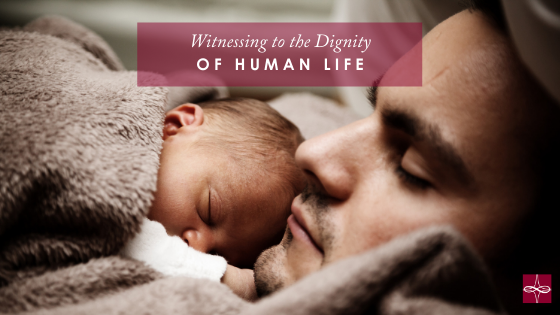

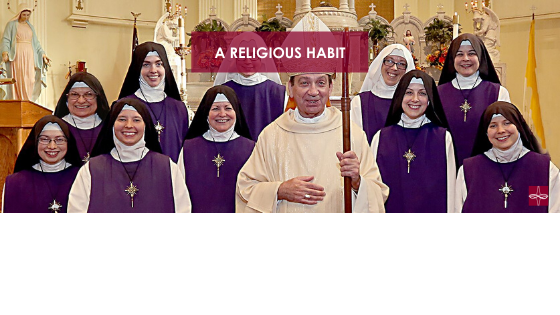

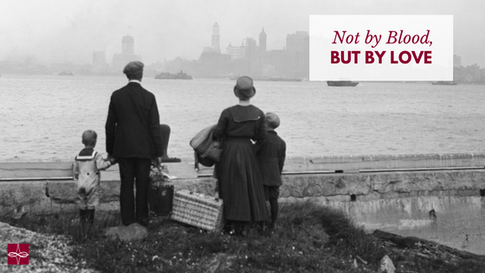


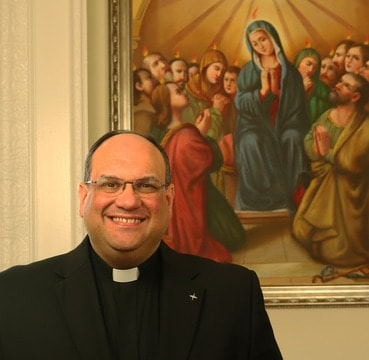
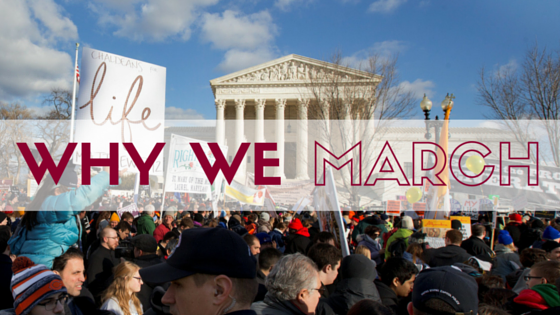
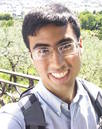
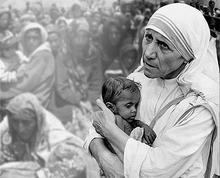

 RSS Feed
RSS Feed